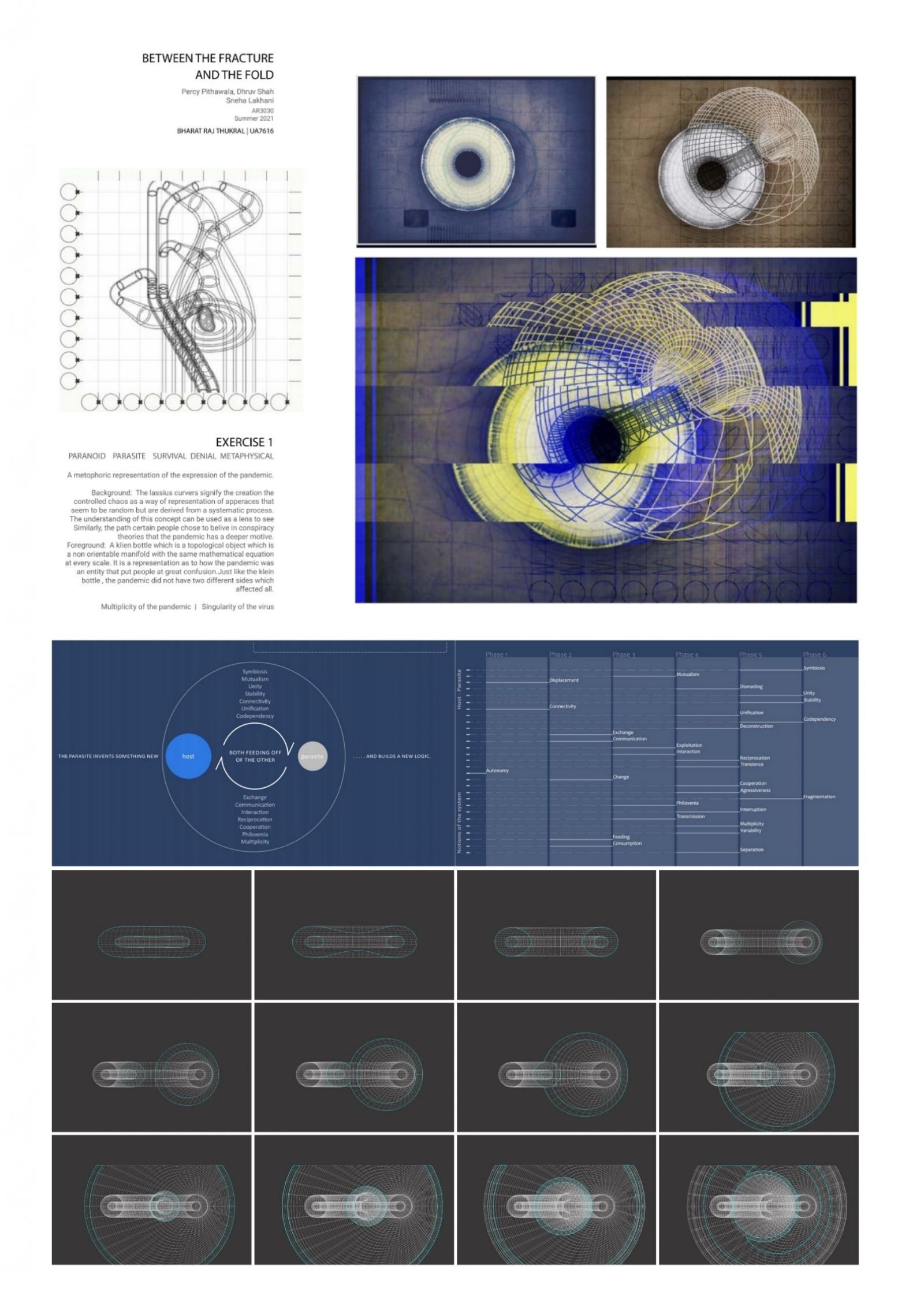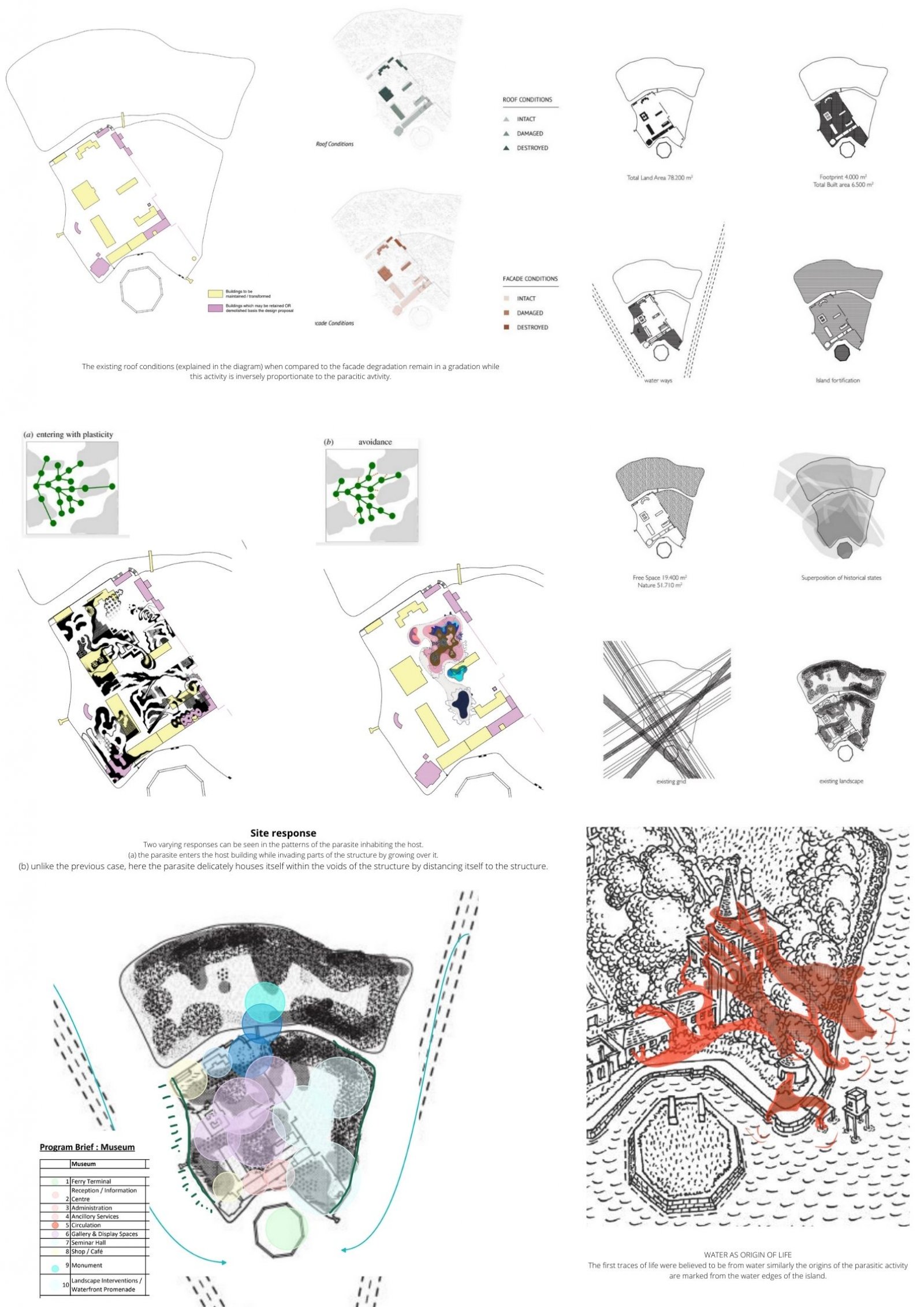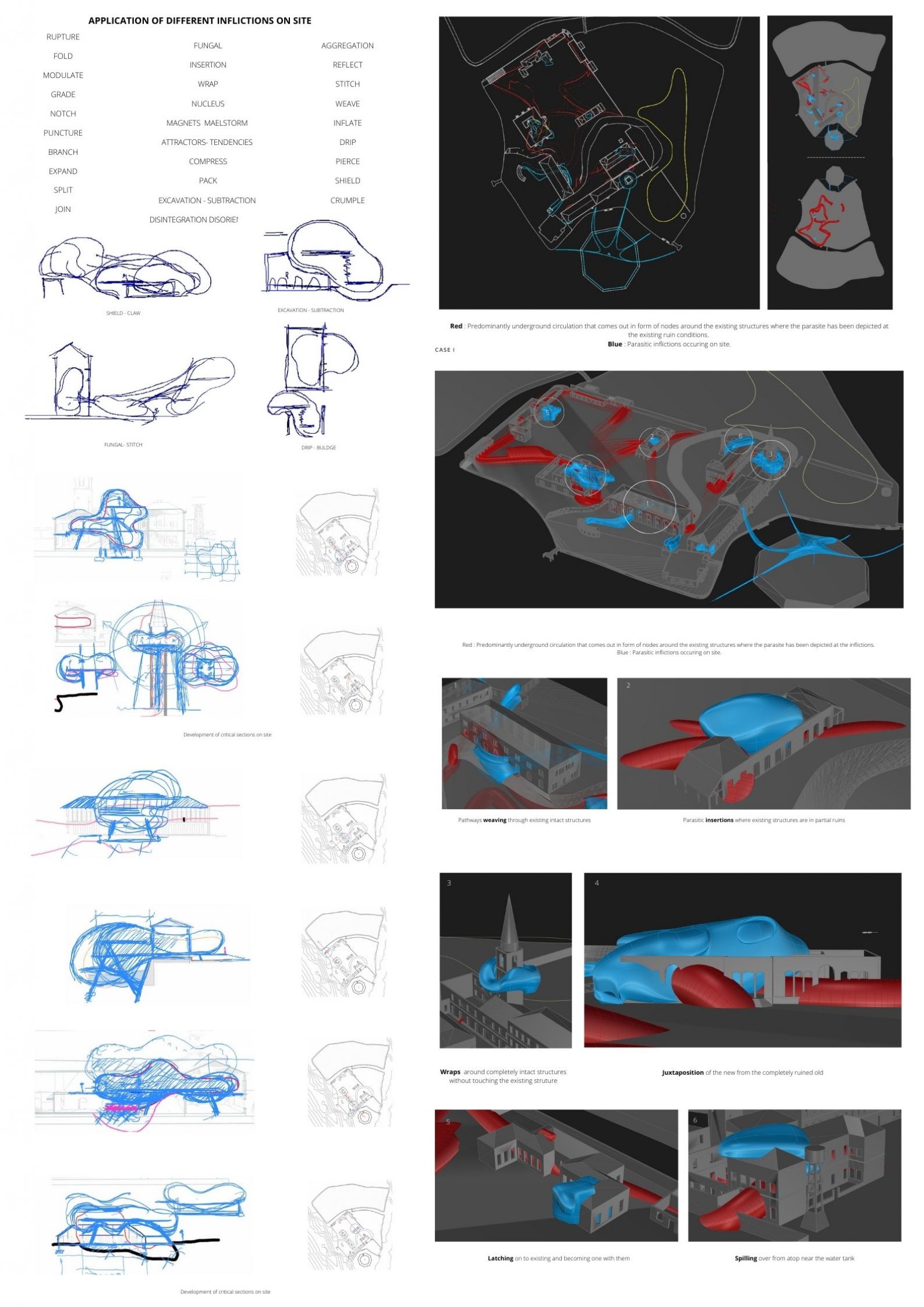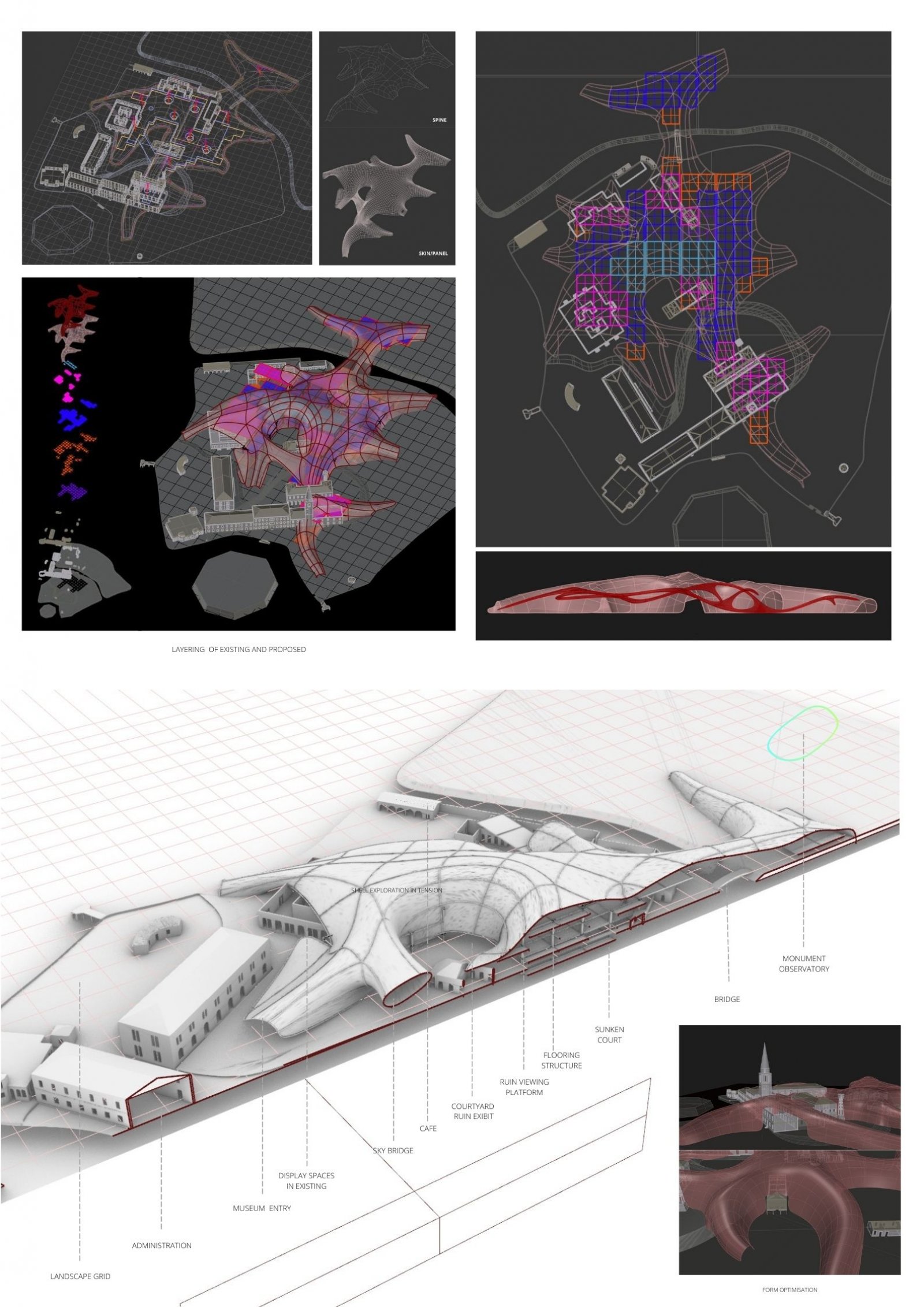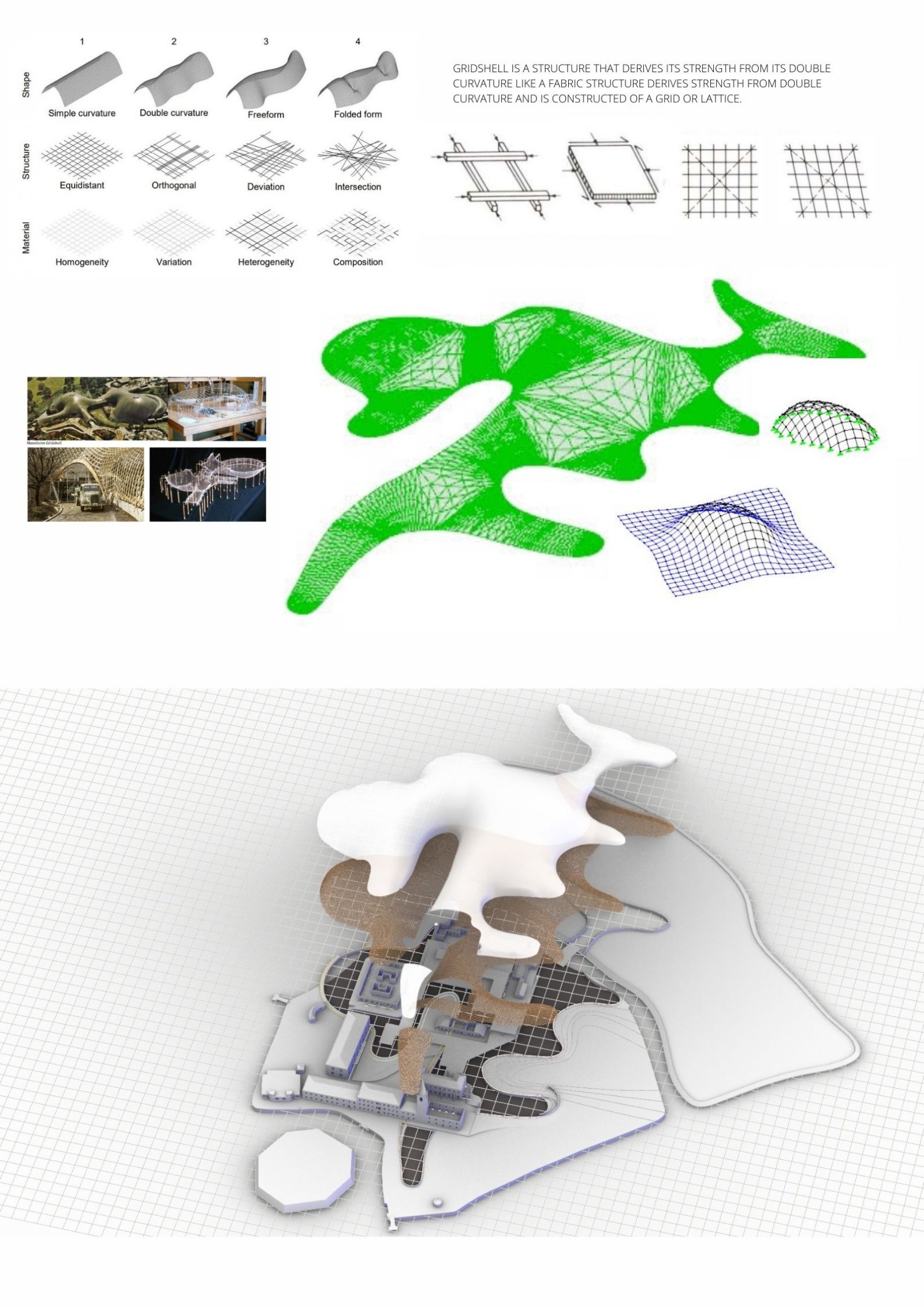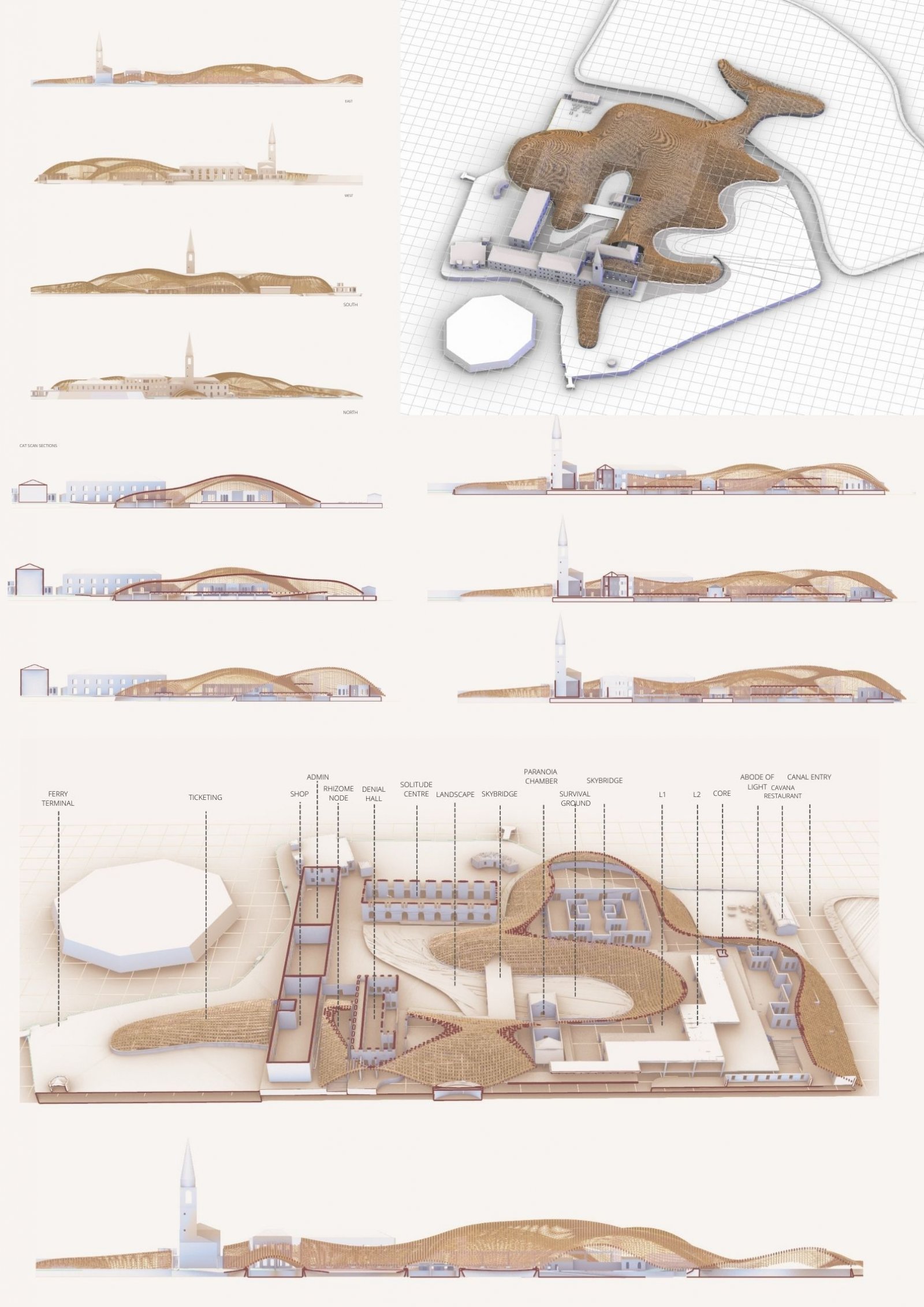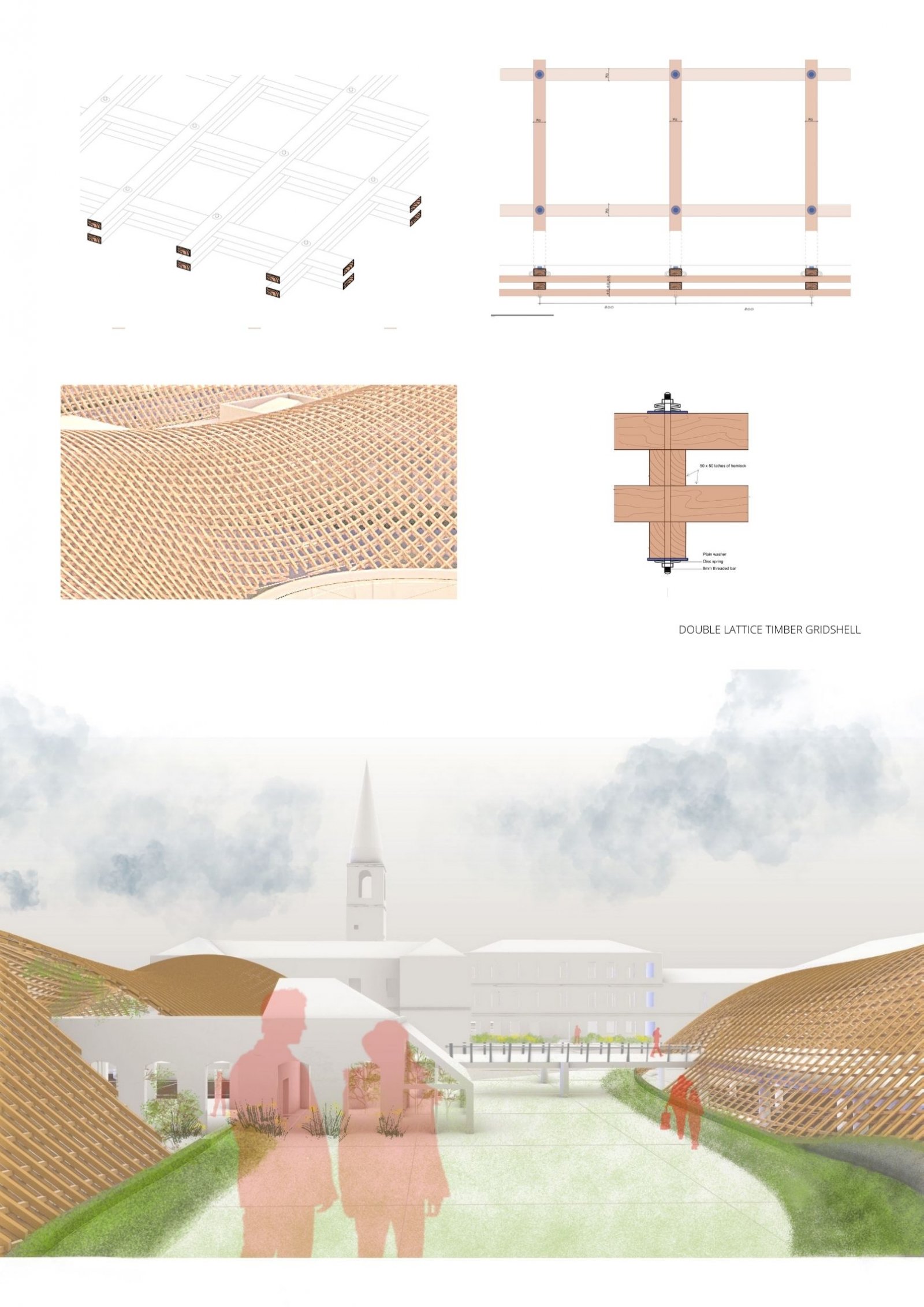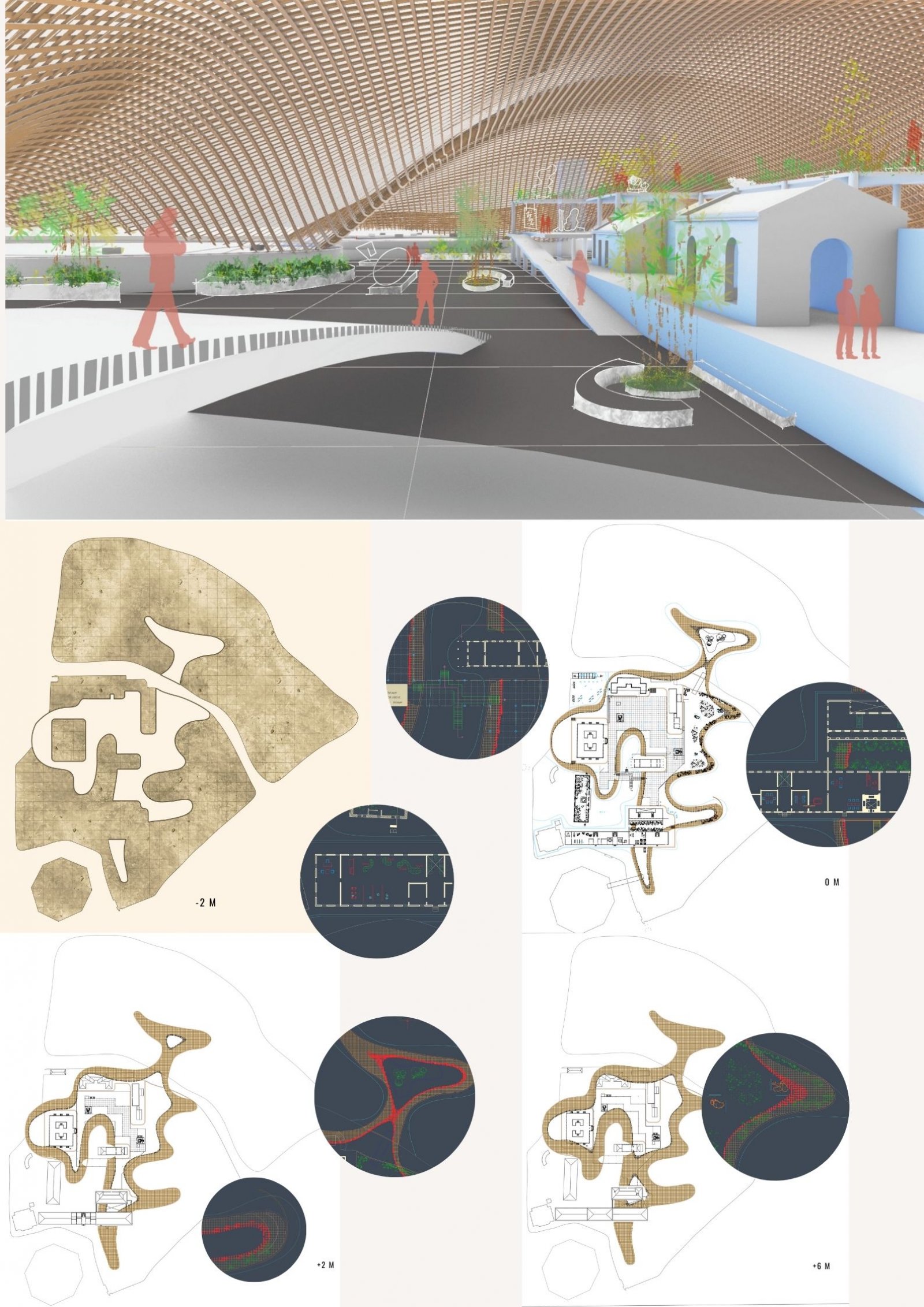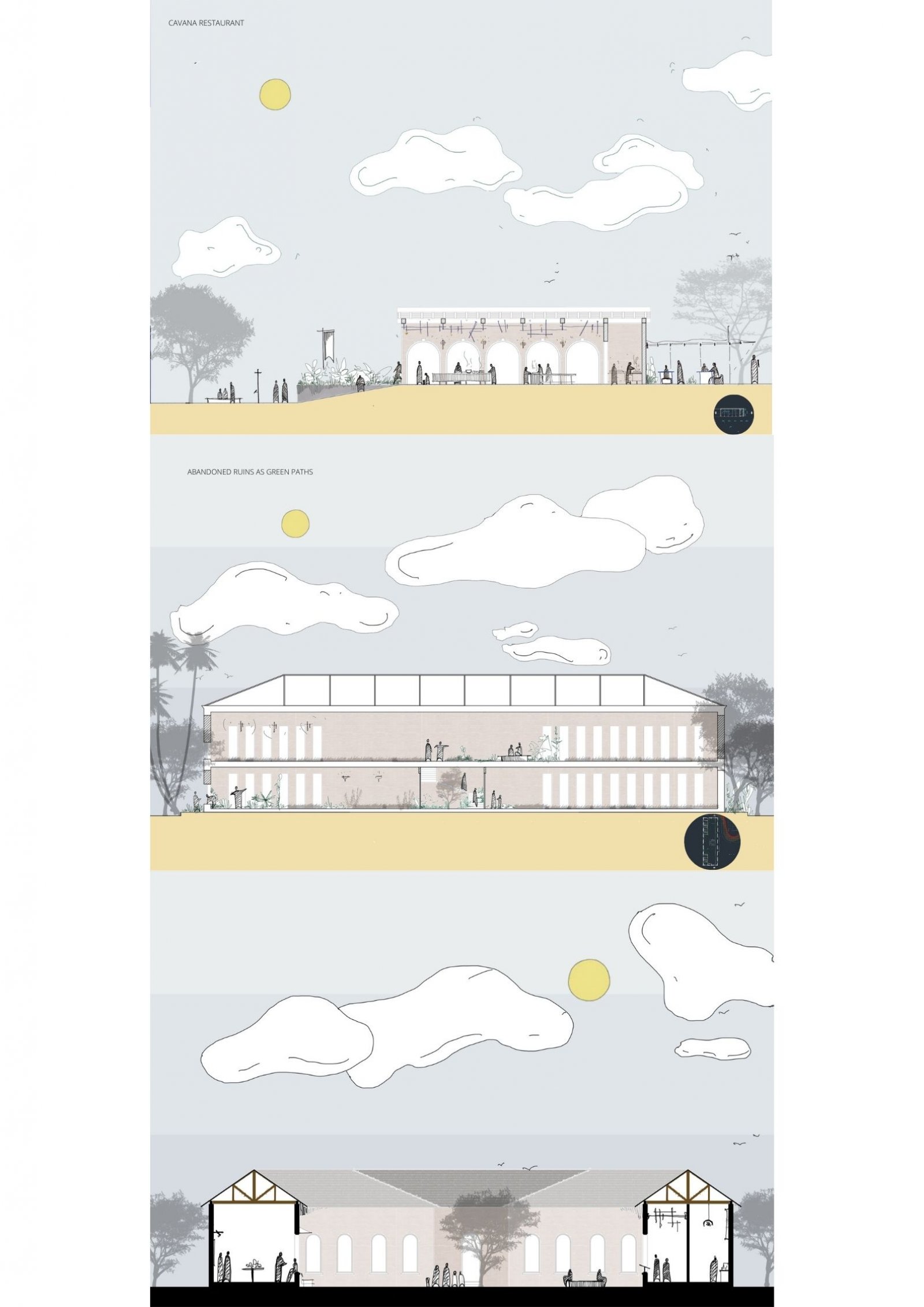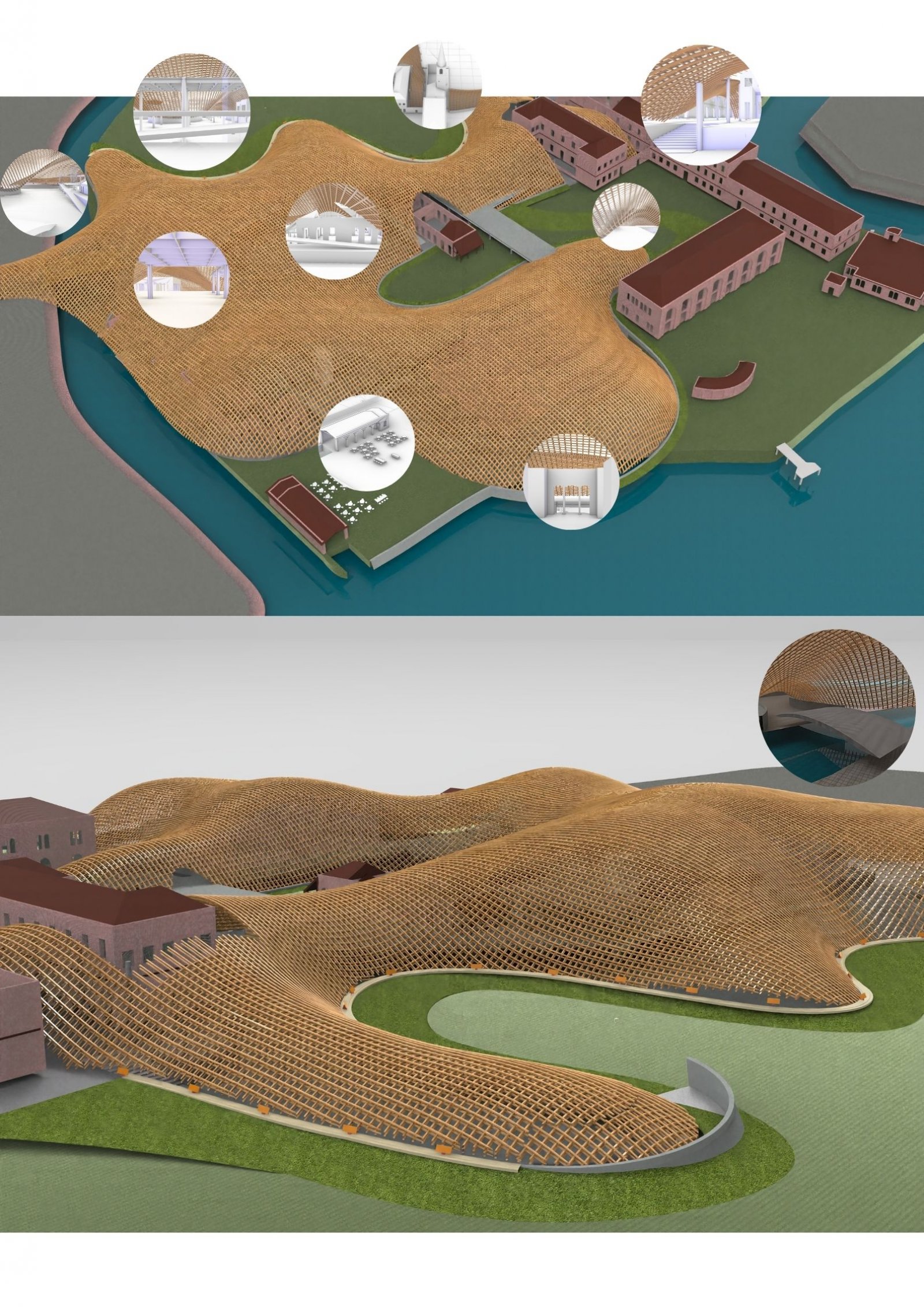Your browser is out-of-date!
For a richer surfing experience on our website, please update your browser. Update my browser now!
For a richer surfing experience on our website, please update your browser. Update my browser now!
This project is a metaphorical architectural exploration of simulation of evolution and simulation of the pandemic , originating largely from ideas of Parasitism and the writings of Deleuze on rhizomes, population thinking and topology.The studio theme pointed towards issues of the pandemic. The project weaves around the concept of survival and brings out the multiplicity of the pandemic and the singularity of the virus.The first point of departure was to create a graphic which was a representation of the expression of the pandemic informed by analytical diagramming of relevant philosophical ideas.This generated a plausible contextual response wherein the ideas of host and parasite could be taken to the extreme. This facilitates the maximum implementation of topology.Previously isolated from its spatial and historical context, the fragments are reconnected to the buildings that once stood.Gradation of the ruins is inversely proportionate to the parasitic activity. The circulation is non-linear, non - hierarchial with multiple entries and exit points almost rhizomatic in nature and operates on the idea of multiplicity. The idea of gradationcontinues in these circulation spaces where different intensities of parasitical activity governs if you would walk , trot , run ,gallop in that space.The octagon, with its historic traces, acts as the museum’s ferry terminal, connecting the 2 waterways.The water edges mark the origins of the parasite which integrates into a gridded landscape that gets distorted by the volumetric hybrids that are formed around the site with respect to the existing structures. These parasites grow in an embryonic manner similar to injections of disease, The different inflictions provide for positive idea of difference. .
View Additional Work